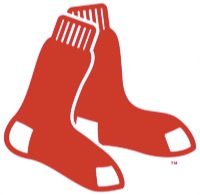 Boston Red Sox owner John Henry says it’s time to take former team owner Tom Yawkey’s name outside the street next to the ballpark, given his opposition to integrating the team in the 1940s and 1950s.
Boston Red Sox owner John Henry says it’s time to take former team owner Tom Yawkey’s name outside the street next to the ballpark, given his opposition to integrating the team in the 1940s and 1950s.
Yawkey’s legacy on the racial front is well-documented. The team was the last in Major League Baseball to integrate; it took Yawkey until 1959 to sign a black ballplayer, Pumpsie Green. In the meantime the Red Sox explicitly passed both on Jackie Robinson and Willie Mays, and Boston has never been regarded as a welcoming place for black players — even those wearing Red Sox uniforms.
Yawkey Way runs outside Fenway Park and is part of the Red Sox game experience, closed before games to give fans a gathering spot. And, technically, the Fenway Park address is 4 Yawkey Way. But Henry says it’s time to change the street name given the racial legacy. From the Boston Herald:
“I discussed this a number of times with the previous mayoral administration and they did not want to open what they saw as a can of worms,” said Henry in an email. “There are a number of buildings and institutions that bear the same name. The sale of the Red Sox by John Harrington helped to fund a number of very good works in the city done by the Yawkey Foundation (we had no control over where any monies were spent). The Yawkey Foundation has done a lot of great things over the years that have nothing to do with our history.”
If it were up to Henry, he would rename the street “David Ortiz Way” or “Big Papi Way.” But before a new name is considered, the name change process needs to start with Henry and the one other Yawkey Way abutter petitioning the City of Boston for approval.
“The Red Sox don’t control the naming or renaming of streets,” Henry said. “But for me, personally, the street name has always been a consistent reminder that it is our job to ensure the Red Sox are not just multi-cultural, but stand for as many of the right things in our community as we can – particularly in our African-American community and in the Dominican community that has embraced us so fully. The Red Sox Foundation and other organizations the Sox created such as Home Base have accomplished a lot over the last 15 years, but I am still haunted by what went on here a long time before we arrived.”
Still, the Yawkeys are fondly remembered by many in Boston, as well as front-office employees dating back from the Yawkey era. And there’s also a reminder of the Yawkeys within the ballpark: the Morse Code running vertically on the American League spells out the initials of Thomas A. Yawkey and Jean R. Yawkey.
